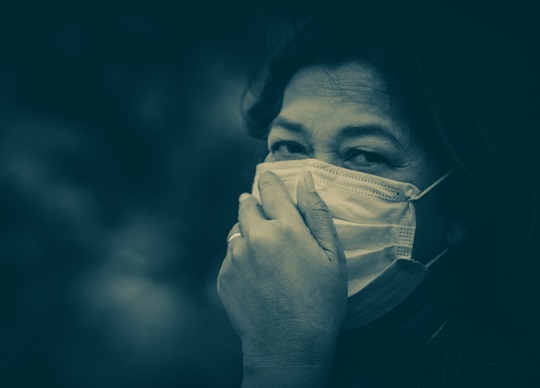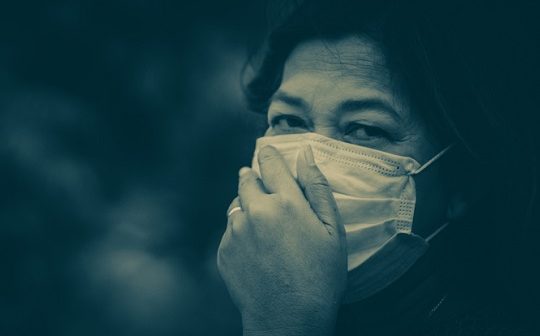
 There have been any number of instances where citizens have gone out of their way in assisting the Covid-afflicted in India, but there are also opportunists having a field day in exploiting even public grief and malady to make a fast buck.
There have been any number of instances where citizens have gone out of their way in assisting the Covid-afflicted in India, but there are also opportunists having a field day in exploiting even public grief and malady to make a fast buck.
As the second wave of coronavirus rampages across India more treacherously than the first, the country became the first in the world to breach 400,000 infections in a single day when it reported 408,323 cases on 30 April. And on Friday, its toll from the virus crossed the 4,000-mark for the first time ever, with 4,192 deaths, joining the United States and Brazil in traversing this dreadful threshold. A total 238,283 people have fallen to the disease till now in India, with confirmed cases surging to a cumulative 21.9 million.
The grim mortality is now being spurred by an acute scarcity of medical supplies like oxygen, with patients suffocating to death before their families who scramble helplessly to secure an oxygen cylinder, a bed or ventilator support.
In this maze of despair and devastation have emerged cyber fraudsters – individuals or in gangs – who have made up helplines, charities and websites offering oxygen cylinders, ventilators, life-saving drugs, even ambulances, hearses and wood for funeral pyres. A black market for essential medicines and medical equipment is flourishing on social media platforms like Facebook, Twitter and WhatsApp, which are awash with such announcements, rendering it difficult to distinguish the fake from the genuine.
In investigating the spate of online frauds, police have found that people in desperation are seldom in a frame of mind to verify antecedents before transferring money online to unknown persons who claim to be of assistance for their critical needs. These extortionists constantly change even their false identifications to evade detection and remain a step ahead of the law.
Shobhit Jain, a 70-year-old Covid patient in a north Indian private hospital, lost his life when two male nurses pocketed his fourth dose of Remdesivir, a broad-spectrum antiviral medication believed to hasten the recovery of the virus-afflicted. Jain had been administered three of four prescribed doses, and when he passed away, the two culprits put up the fourth dose for online auction, Remdesivir being hugely coveted in the present time of shortages. The duo asked for A$556 for the drug that costs A$15.7 to A$34.8, and received a bid for A$434.8.
The bid had, however, been made by policemen pretending to be relatives of a patient, and when they went to the hospital incognito, the male nurses became suspicious and tried to flee. The police chased them, but were challenged by six security guards of the hospital who were apparently part of the gang of scamsters. The police overpowered and arrested the guards and the nurses.
Large numbers of Remdesivir injections were also filched from Bhopal’s JK Hospital by a nurse who would then place empty vials of the drug in view of the patients while administering them saline. She then blackmarketed the Remdesivir with her boyfriend. While the man was arrested, the woman is on the run.
Twenty-five-year-old Imran Ahmed was arrested in Delhi for cheating distressed families of Covid-19 patients on the pretext of provisioning ICU and oxygen beds. The police said he had cheated 11 families of A$2,260 in a span of five days, these families having put up distress messages on social media for such beds. Ahmed allegedly circulated his fake contact details on WhatsApp groups and asked his gang members to forward the details as well.
Among the victims who contacted him was Ankit Bansal, in his quest for an oxygen bed for a relative whose oxygen levels had dropped. Upon receiving a number on a WhatsApp group, he telephoned Ahmed, who claimed he had contacts in private hospitals and would arrange for a bed for a fee of A$522. Bansal was asked to make an online payment of A$174, following which he could not access Ahmed’s number. The police gathered the bank account details from the transaction and trailed the accused, who was arrested from his house.
Geeta Arora was looking for a bed without success for her Covid-positive relative who had a breathing issue. Failing to find him admission to any hospital, she tried to arrange for an oxygen cylinder, when she contacted a number she found on Twitter. Two persons contacted her in this regard and asked her to transfer A$174 to an account, following which a fire extinguisher was delivered to her. Through technical surveillance, the police tracked down the two accused who had been selling distressed callers fire extinguishers in the name of oxygen cylinders. The culprits told the police they had hit upon this idea of cheating people after seeing the magnitude of the crisis.
The on-going pandemic has also spawned what appears to be a child-trafficking racket. Police have seen children orphaned by Covid-19 being offered for adoption on social media in violation of prevailing laws. Those having information about such orphaned children have been urging people online to adopt them, which police suspect may be done either unwittingly out of ignorance of laws governing adoption, but possibly also for child trafficking. Vigilance being stepped up against such racketeering, while efforts are being made to raise awareness about adoption processes in India. The public is being informed that it is its legal responsibility to inform the police about children who have lost both parents to Covid-19 and have no one to take care of them.
The problem has assumed global proportions, with the World Health Organisation (WHO) issuing an advisory recently: “Hackers and cyber scammers are taking advantage of the coronavirus disease pandemic by sending fraudulent email and WhatsApp messages that attempt to trick you into clicking on malicious links or opening attachments. These actions can reveal your user name and password, which can be used to steal money or sensitive information. If you are contacted by a person or organisation that appears to be WHO, verify their authenticity before responding.”
Law enforcement agencies in India have frozen numerous bank accounts of these cyber frauds to prevent them from withdrawing or spending money, and have submitted suspicious mobile phone numbers to the Department of Telecommunications for mandatory verification so that these numbers are not used anymore.
The activities, however, appear too widespread to be stifled by such action.






